Irish Beverages: Basic Overview
Common Ingredients
Common Preparing Methods
Key Taste
Drinking Etiquette
Culinary Festivals
Influence and Fusion
Classifications of Irish Beverages
-
Alcoholic Beverages
Irish alcoholic beverages are deeply embedded in the country’s culture and history, showcasing a variety of flavors and brewing/distilling traditions.
These drinks range from stouts and ales with rich, creamy textures and roasted malt flavors to smooth whiskeys with complex notes of fruit, spice, and wood.
Irish alcoholic drinks are often enjoyed in social settings, celebrations, and traditional festivals, reflecting the communal aspect of Irish hospitality.
-
Non-alcoholic beverages
The non-alcoholic options in Irish cuisine include a range of traditional and modern beverages, from refreshing soft drinks with unique flavors to robust teas.
These drinks often use local ingredients, such as apples for soft drinks and a blend of black teas for a hearty breakfast tea.
They cater to all ages and occasions, from casual gatherings to formal celebrations, embodying the versatility and inclusivity of Irish drink culture
Irish beverages are drinks commonly enjoyed in Ireland, a country located in north-western Europe. Ireland, known as the Republic of Ireland, occupies most of the island of Ireland, with its capital in Dublin.
This nation is known for its rich history, cultural traditions, and scenic landscapes, surrounded by the Atlantic Ocean, the Celtic Sea to the south, St George’s Channel to the southeast, and the Irish Sea to the east.
These beverages include both alcoholic and non-alcoholic options that reflect the country’s traditions and agricultural resources.
Alcoholic beverages like Irish whiskey, stout (notably Guinness), and cream liqueurs (such as Baileys) are integral to Ireland’s social and culinary scene.
Non-alcoholic options are dominated by tea, a staple in Irish homes, signifying hospitality and warmth. Ireland is one of the top tea-consuming countries globally, with a preference for strong, full-flavored blends.
Apart from the widely recognized Irish drinks, you can explore the traditional Irish drinking customs, the global rise in popularity of Irish beverages, and recommended pairings of dishes with these drinks.
Let’s find out now!
32 Popular Irish Beverages
Discover the top 32 Irish beverages, meticulously curated based on their popularity. Our concise guide offers advanced filters for a tailored journey, allowing you to refine your search by popularity, ingredients, taste profiles, and preparation techniques.
From traditional to national favorites, street drinks, and fusion options, navigate the rich tapestry of Ireland’s drink culture with ease.
Guinness
- Alcoholic
- National
- Traditional
Guinness is a traditional Irish dry stout that originated in the brewery of Arthur Guinness at St. James’s Gate, Dublin, in 1759. It is characterized by its distinctive black color, often described as a very dark ruby red, and its rich, creamy head.
The flavor of Guinness comes from malted barley and roasted unmalted barley, giving it a unique taste that has made it one of the most successful beer brands worldwide.
It is brewed in almost 50 countries and available in over 120, with significant sales figures that highlight its popularity, especially in Ireland, where it is considered a national drink.
Guinness is known for its thick, creamy head, which is achieved by mixing beer with nitrogen and carbon dioxide. This iconic stout has a variety of famous variations, including Guinness Draught, Guinness Foreign Extra Stout, and Guinness Extra Smooth, among others.
It is often associated with St. Patrick’s Day celebrations and other Irish festivals, where it is consumed as part of the festivities.
Jameson
- Alcoholic
- Traditional
Jameson is a blended Irish whiskey that has become the most popular Irish whiskey worldwide. It was founded in Dublin in 1780 by John Jameson, a Scottish lawyer who turned to whiskey production.
Now distilled in County Cork, Jameson is known for its smoothness and versatility, making it a favorite in various cocktails. The brand offers several variants, including Jameson Original, Crested, Black Barrel, and aged expressions like the 18 Year Old.
Jameson’s rich history and widespread availability have made it a staple in Irish culture and beyond, often associated with social gatherings and celebrations.
Baileys Irish Cream
- Alcoholic
- Traditional
Baileys Irish Cream is a pioneering Irish cream liqueur, a harmonious blend of rich cream, cocoa, and premium Irish whiskey, skillfully emulsified with vegetable oil to ensure stability.
Originating from Ireland and introduced in 1974, Baileys holds the distinction of being the first of its kind in the market. It’s celebrated for its versatility, enjoyed on its own, in cocktails, or as a decadent addition to desserts.
Over the years, Baileys has expanded its allure with a variety of flavors, including mint chocolate, crème caramel, coffee, hazelnut, and more exotic offerings like Biscotti and Chocolat Luxe, catering to diverse palates and occasions.
Irish Coffee
- Alcoholic
- Traditional
Irish coffee is a unique mix of hot coffee, Irish whiskey, sugar, and topped with a layer of cream. This drink is enjoyed by sipping the hot coffee with a cool layer of cream on top.
The concept of adding whiskey to coffee to warm up travelers first emerged in the 1940s at an airbase in County Clare, Ireland. It gained international popularity, particularly in the United States, after being introduced in San Francisco.
Irish Whiskey
- Alcoholic
- Traditional
Irish whiskey is a distilled beverage from Ireland, known for its smooth and often slightly sweet flavor profile, typically with hints of vanilla. It’s a traditional Irish drink that has played a significant role in Irish culture and history.
Irish whiskey comes in several famous variations, including Pot Still, Malt, Grain, and Blended Irish whiskey. Some well-known brands include Jameson, Bushmills, and Knappogue Castle.
This beverage is enjoyed widely during various events and gatherings in Ireland and around the world.
Tullamore DEW
- Alcoholic
- Traditional
Tullamore DEW is a traditional Irish whiskey that has become a significant part of Ireland’s national beverage heritage. Originating in the town of Tullamore in County Offaly, this whiskey was first distilled in 1829.
Named after Daniel E. Williams, whose initials D.E.W. highlighting his influence on the brand, Tullamore DEW is known for its smooth and gentle complexity.
As the second-largest selling brand of Irish whiskey globally, it has a variety of famous variations, including the Original, 12 Year Old Special Reserve, and the 14 and 18 Year Old Single Malts, among others.
Irish whiskey like Tullamore DEW is often enjoyed during celebrations and is a staple in many Irish pubs and gatherings worldwide.
Murphy’s Stout
- Alcoholic
- Traditional
Murphy’s stout, also simply known as Murphy’s, is a traditional Irish stout that hails from Cork, Ireland. It is characterized by its smooth, less bitter flavor compared to some of its counterparts, with a taste profile that includes hints of caramel and malt, often likened to mild chocolate milk.
The stout is renowned for its creamy texture and lack of carbonation, presenting a rich black color topped with a creamy foam head. Murphy’s has a unique brewing process that utilizes the waters of the River Lee, contributing to its distinctive quality.
Over the years, Murphy’s has expanded beyond its local roots, especially after being acquired by Heineken International, making it a well-recognized brand in the international stout market.
Despite facing challenges in the stout market, Murphy’s maintains a loyal following, particularly in Cork, and continues to be celebrated for its smooth, creamy taste and less bitter finish.
Kilkenny
- Alcoholic
- Traditional
Kilkenny, a nitrogenated Irish cream ale, is a traditional beverage that originated in Kilkenny, Ireland.
Managed by Diageo and produced under the Guinness brand, Kilkenny is known for its smooth, creamy head similar to that of Guinness, but with a less hoppy finish, making it distinct from its counterparts like Smithwick’s Draught.
Initially introduced in the 1980s and 1990s as a stronger version of Smithwick’s for the European and Canadian markets, Kilkenny has since become a distinct beer in its own right.
It was traditionally brewed at the St. Francis Abbey Brewery, the oldest operating brewery in Ireland until its closure in 2013, and production has since moved to the Guinness brewery in Dublin.
Kilkenny is particularly popular in Ireland, Australia, and Canada, and is served with a creamy head, much like Guinness, enhancing its smooth texture and rich flavor profile.
Smithwick’s
- Alcoholic
- Traditional
Smithwick’s is a traditional Irish red ale, first brewed in 1710 in Kilkenny, Ireland. It’s known for its balanced, malty flavor and ruby red color. The beer has variations like Kilkenny Cream Ale and Smithwick’s Pale Ale.
Originally brewed at a site with a history of ale brewing by Franciscan monks, Smithwick’s is part of Ireland’s rich brewing heritage. It’s a popular choice for social occasions. Brewing operations moved to Dublin in 2013 after being acquired by Guinness, which is part of Diageo.
Irish Breakfast Tea
- Non-Alcoholic
- Traditional
Irish Breakfast Tea is a traditional blend of several black teas, predominantly Assam and Ceylon varieties, known for its robust and malty flavor. This beverage is a staple in Irish tea culture and is enjoyed not just at breakfast, but throughout the day.
It’s often served with milk due to its strong flavor and is part of the national cuisine. There isn’t a standard formula for its blend, but its defining characteristic is the significant proportion of Assam tea, giving it a distinctive taste and color.
Irish Red Ale
- Alcoholic
- Traditional
Irish red ale, also known as red ale or Irish ale, is a style of pale ale that boasts a distinctive red hue, attributed to the use of kilned malts and roasted barley in its brewing process. This beverage, hailing from Ireland, typically presents an alcohol content ranging from 3.8% to 6%.
It is characterized by its malt-forward profile, offering a caramel or toffee-like sweetness, complemented by a dry finish and a mild to moderate bitterness.
While the exact origins of Irish Red Ale are shrouded in mystery, it is often associated with the historic brewing practices of Kilkenny city, particularly at St. Francis Abbey from the 14th century.
Smithwick’s, a notable example of Irish Red Ale, traces its roots back to 1710 and has become synonymous with this style. Despite its rich heritage, the term “Irish Red Ale” gained popularity primarily in the United States, where it was used to describe a reddish-amber ale with Irish origins.
Bulmers
- Alcoholic
- Traditional
Bulmers or Magners Irish Cider, known as Bulmers in the Republic of Ireland and Magners outside of it, is a traditional Irish beverage. Originating from County Tipperary, this cider is a significant part of Irish drink culture, produced by the C&C Group.
The cider comes in various types, including the original, light, berry, pear, and rosé varieties, each offering a unique taste profile. It is crafted from 17 different apple varieties, which are fermented and matured for up to two years, ensuring a rich and complex flavor.
Bulmers/Magners is often associated with casual gatherings and social events, rather than specific festivals or celebrations. It’s commonly served over ice, enhancing its refreshing quality.
Irish Cider
- Alcoholic
- Traditional
Irish cider, also known as leann úll in the Irish language, is a traditional alcoholic beverage made from fermented apple juice. It has a long history in Ireland, with production dating back thousands of years, particularly in regions like Armagh, Kilkenny, Tipperary, and Waterford.
The drink has seen fluctuations in popularity, facing declines during the Great Famine and the world wars, but experienced revivals in the late 19th century and again in the early 21st century.
Today, Irish cider is enjoyed both domestically and internationally, with craft cider production on the rise. The beverage is a staple in pubs and supermarkets across Ireland, and is associated with a casual drinking culture.
Drumshanbo Gunpowder Irish Gin
- Alcoholic
- Traditional
Drumshanbo Gunpowder Irish Gin is a distinctive spirit that hails from the rural heart of Ireland, specifically from The Shed Distillery located in Drumshanbo, Co. Leitrim.
This gin is a product of the innovative and exploratory spirit of its creator, PJ Rigney, who ventured into the unknown to blend oriental botanicals with local Irish ones, crafting a gin that is both unique and extraordinary.
The use of gunpowder tea, along with a selection of fine oriental botanicals, gives this gin its name and a notable flavor profile, setting it apart from traditional gins.
It’s known for its fresh citrus notes, oriental botanical richness, and a mildly warming finish that makes it versatile in cocktails, especially those that are citrus-forward like a Tom Collins or Gimlet.
Irish Car Bomb
- Alcoholic
- Fusion
The Irish Car Bomb, also known as the Irish Slammer, Dublin Drop, or simply the Irish Bomb, is a cocktail that combines the flavors of Irish stout, Irish cream, and Irish whiskey.
This drink is a fusion beverage, known for its unique method of consumption where a shot of Irish cream and whiskey is dropped into a glass of stout. It’s important to drink it quickly to avoid curdling.
Despite its popularity, the name is controversial due to historical sensitivities, and some prefer to use its alternative names. The drink is often associated with St. Patrick’s Day celebrations but is enjoyed year-round.
Baileys Espresso Martini
- Alcoholic
- Fusion
Baileys Espresso Martini is a modern fusion drink that combines the rich, creamy taste of Baileys Irish Cream with the boldness of espresso.
This beverage is a sophisticated twist on the classic martini, offering a blend of coffee and cream flavors that make it a favorite in contemporary Irish cuisine. It’s particularly popular as an after-dinner drink or a chic cocktail for evening events.
Irish Mule
- Alcoholic
- Fusion
Irish Mule is a variation of the classic Moscow Mule cocktail, which traditionally includes vodka, ginger beer, and lime juice, served in a copper mug. The Irish Mule substitutes vodka with Irish whiskey, giving it a distinctive Irish twist.
This beverage is part of the modern cocktail culture and is enjoyed for its spicy, refreshing taste. Variations include the addition of other ingredients like mint or bitters to enhance the flavor.
Irish Old Fashioned
- Alcoholic
- Fusion
Irish Old Fashioned is a variation of the classic Old Fashioned cocktail, traditionally made by muddling sugar with bitters, adding water, and then incorporating whiskey, often rye or bourbon.
This drink is garnished with an orange slice or zest and a cocktail cherry, and served with ice in an old-fashioned glass.
The Irish twist on this classic cocktail typically involves using Irish whiskey instead of the more commonly used rye or bourbon, lending the drink a smoother and slightly sweeter profile characteristic of Irish whiskeys.
While the Old Fashioned cocktail itself is a traditional drink with a long history dating back to the 19th century, the Irish Old Fashioned brings a fusion element to the table by combining the classic American cocktail structure with the distinct flavors of Irish whiskey.
Irish Sour
- Alcoholic
- Fusion
- Traditional
Irish sour is a cocktail often associated with the celebration of St. Patrick’s Day in Ireland. This cocktail is known for its refreshing and tangy flavor profile, typically consisting of Irish whiskey, lemon juice, and a sweetener such as simple syrup.
The drink is usually shaken with ice and then strained into a glass, often garnished with a slice of lemon or a cherry.
Irish Maid
- Alcoholic
- Traditional
Irish Maid is an Irish cocktail that combines Irish whiskey with fresh lemon juice, simple syrup, and cucumber slices. It’s a refreshing, slightly sweet drink with a light, crisp taste from the cucumber.
This cocktail is part of the contemporary cocktail scene and is appreciated for its balance of flavors and its smooth, refreshing finish.
Nutty Irishman
- Alcoholic
- Traditional
Nutty Irishman is a creamy and indulgent beverage from Irish cuisine, known for its rich blend of flavors. It is a traditional drink, often enjoyed in a relaxed setting.
This beverage is characterized by its combination of Irish whiskey and hazelnut liqueur, which gives it a distinctive nutty flavor, often enhanced with a touch of cream.
The Nutty Irishman is a popular choice for cozy evenings and social gatherings, embodying the warmth and hospitality of Irish culture.
Irish Eyes
- Alcoholic
- Traditional
Irish Eyes is a delightful and festive cocktail that embodies the essence of Irish cuisine. This beverage, a national favorite, is especially popular for its creamy texture and minty freshness, making it a traditional choice for celebrations and social gatherings.
The key ingredients that define Irish Eyes include Irish whiskey, green crème de menthe, and cream. These components come together to create a smooth, indulgent drink known for its visually appealing green hue and refreshing minty undercurrent.
Irish Eyes is often associated with St. Patrick’s Day, where it is enjoyed as part of the festivities.
Irish Mist
- Alcoholic
- Traditional
Irish Mist is a traditional Irish liqueur that dates back to 1947, making it the first liqueur produced in Ireland. Originating from Tullamore, it’s crafted from a blend of aged Irish whiskey, heather and clover honey, herbs, and other spirits, following an ancient recipe.
This deep golden red liqueur is known for its smooth blend of sweet and herbal flavors and is enjoyed in various ways, including neat, on ice, or as part of cocktails like the Rusty Mist or Black Nail. Irish Mist holds a special place in Irish heritage and is available in over 40 countries.
Irish Flag
- Alcoholic
- Fusion
- Traditional
The Irish Flag, a layered shooter or shot drink, is a visually striking beverage that represents the colors of the Irish national flag.
This drink is typically made by carefully layering ingredients of different densities to create a visual effect that mimics the green, white, and orange stripes of the flag.
It’s a popular choice in bars and during celebrations, especially around St. Patrick’s Day, when Irish culture and heritage are celebrated worldwide.
The Irish Flag is a festive drink, and it’s often enjoyed during important celebrations and gatherings that have an Irish theme.
Fat Frog
- Alcoholic
- Fusion
Fat frog is a popular, vibrant green cocktail known for its sweet taste and striking color. It is often made by mixing a combination of bottled alcopops, such as Smirnoff Ice, Bacardi Breezer, and WKD Blue.
This concoction results in a fruity, refreshing beverage that is particularly popular among younger adults and is frequently enjoyed at parties and social gatherings.
Although not a traditional or national drink of Ireland, the Fat Frog has gained popularity for its playful name and distinctive appearance.
Irish Moonshine
- Alcoholic
- Traditional
Irish Moonshine, traditionally known as Poitín (pronounced “potcheen”), is a traditional Irish distilled beverage that can vary in strength, typically ranging from 40% to 90% alcohol by volume.
Poitín holds a storied place in Irish culture, having been produced for centuries as a potent, clear spirit.
Originally made in small pot stills from malted barley, grain, potatoes, sugar beet, or molasses, it was historically distilled in a clandestine manner to avoid excise men or law enforcement, leading to its nickname “Irish moonshine.”
This beverage is deeply rooted in rural Irish tradition and was often associated with remote areas where it could be produced away from the prying eyes of the authorities.
Over time, Poitín has seen a resurgence, with legal versions now available on the market, yet it retains its reputation as a symbol of Irish heritage and craft distillation.
Redbreast 12
- Alcoholic
- Traditional
Redbreast 12 is a traditional Irish whiskey known for its single pot still production method. Originating from Ireland, this whiskey is a flagship expression of the Redbreast brand, which has a history dating back to the early 1900s.
It is celebrated for its rich and complex flavor profile, which includes notes of fruit, spice, and wood. Redbreast 12 is part of a family of whiskeys that includes several age variants, such as the 15-year-old and 21-year-old, each offering a unique taste experience.
Mead
- Alcoholic
- Traditional
Mead is a traditional Irish beverage made from fermented honey and water, with optional additions like fruits, spices, or grains. It’s one of the oldest known alcoholic drinks, deeply embedded in Celtic traditions and Irish folklore.
This national drink varies from sweet to dry and still to sparkling, reflecting Ireland’s beekeeping heritage. Notable variations include melomel (fruit meads), metheglin (spiced meads), cyser (apple meads), and braggot (beer-like meads).
Mead is historically associated with Celtic festivals and traditional Irish weddings, symbolizing prosperity and happiness.
Red Lemonade
- Non-Alcoholic
- Street Beverages
- Traditional
Red Lemonade, also known as Líomanáid dearg in Irish, is a traditional soft drink integral to the cultural identity of Ireland. This beverage stands out for its distinctive red color and is enjoyed both on its own and as a mixer with spirits, particularly whiskey.
Red lemonade is especially popular during festive occasions and is sometimes considered a folk remedy. Major brands like TK, Country Spring, and Finches offer their own versions of this beloved drink.
Despite an urban myth suggesting otherwise, red lemonade continues to be a cherished part of Irish celebrations and gatherings.
Cidona
- Non-Alcoholic
- Street Beverages
- Traditional
Cidona is a non-alcoholic, apple-based soft drink that has been part of Irish beverage offerings since 1955. Known for its crisp and refreshing apple flavor, Cidona is a traditional drink within the Irish soft drink market.
Originally produced by Bulmers and now under Britvic Ireland, it remains a popular choice in Ireland and has some presence in the UK.
The drink’s history and its association with Bulmers, a company known for cider production, highlight its cultural significance within the Irish beverage landscape.
Tanora
- Non-Alcoholic
- Street Beverages
- Traditional
Tanora is a tangerine-flavored carbonated beverage originating from Cork City, Ireland, in the 1930s. It is considered a traditional Irish drink, particularly popular in the Munster region.
Tanora, initially introduced by John Daly & Co. and now owned by Coca-Cola Bottlers Ireland, is known for its distinctive orange color and tangerine taste.
The drink has undergone several formula changes over the years, including a notable reformulation in 2011 that introduced carrot and blackcurrant flavorings, which was later reverted due to consumer demand.
Tanora is available in various packaging options, including 2-liter and 500ml plastic bottles, and was previously available in 330ml cans and 200ml glass bottles.
Club
- Non-Alcoholic
- Traditional
Club, also known as Club Soft Drink, is a series of carbonated soft drinks produced in Ireland by Britvic Ireland, with a history tracing back to the 1930s.
This brand includes a variety of flavors such as Club Orange, Club Lemon, Club Rock Shandy, and Club Apple, making it a versatile and traditional Irish beverage choice.
Club Orange, the first in this series, was notable for being the first orange fruit juice on the Irish market and is distinguished by containing real fruit bits, often referred to as “the bits inside that make it come alive.”
The Club series of drinks is a reflection of Ireland’s beverage culture, offering a range of flavors that cater to different tastes.
Which Irish Dishes to Pair with Beverages?
Pairing Irish dishes with the right beverages can elevate your dining experience, offering a harmonious blend of flavors. Here’s a guide to some classic combinations:
Remember, the best pairing of beverages and signature dishes from Ireland is one that suits your taste, so feel free to experiment and find your perfect match!
Before you go, please give this post a like if you find it useful. Sharing it with your friends and loved ones is great, too. Feel free to let me know your opinion or share your experiences in the comment section below. Thank you and have a good day!
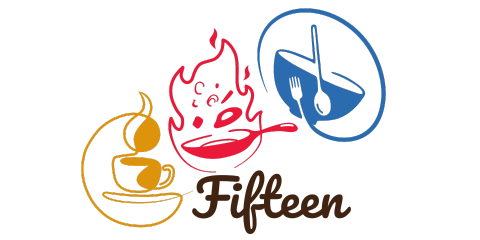


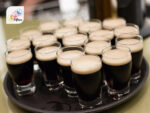
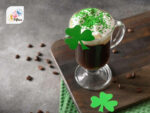
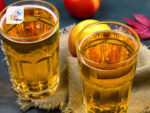


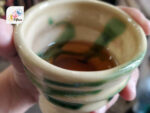
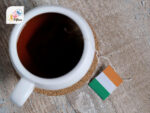
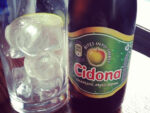
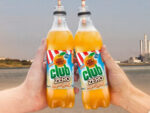
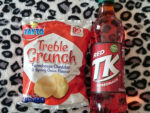
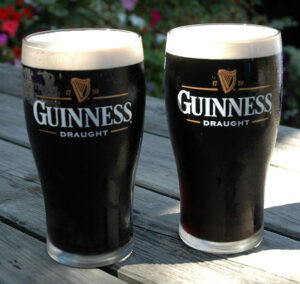
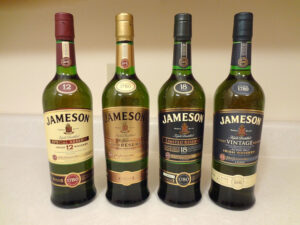
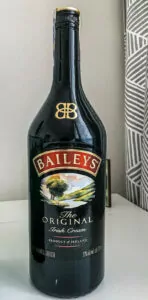
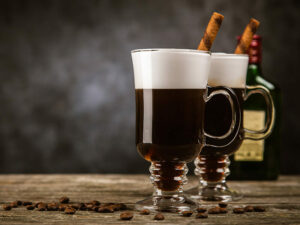
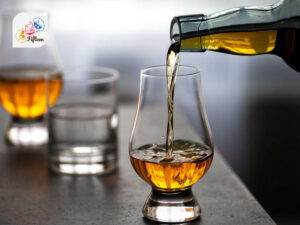
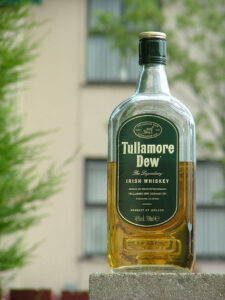
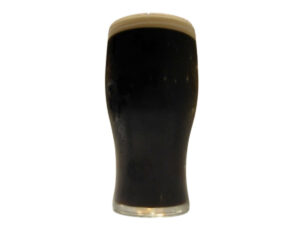
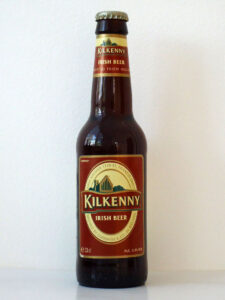
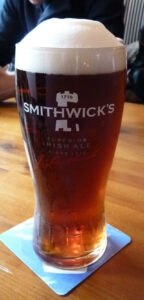
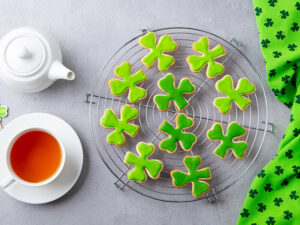
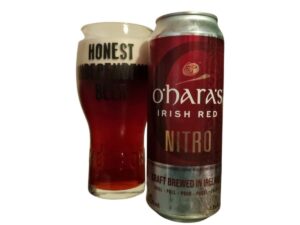
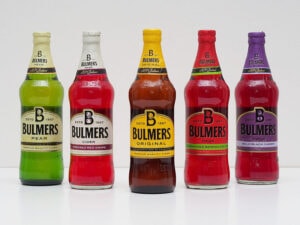
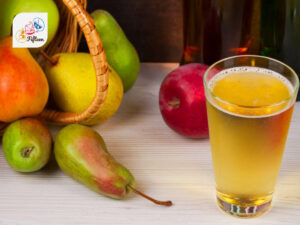
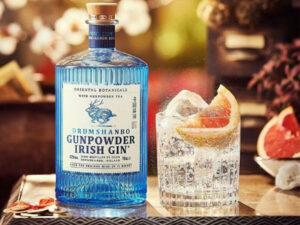
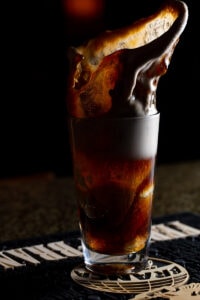
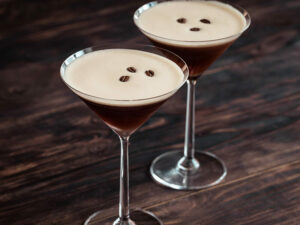
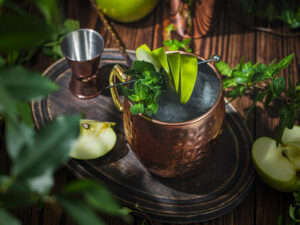
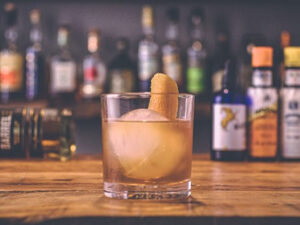
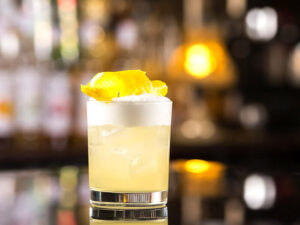
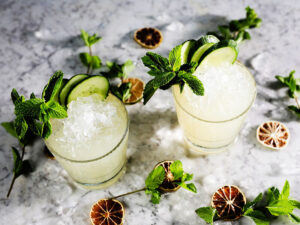
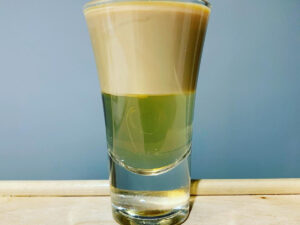
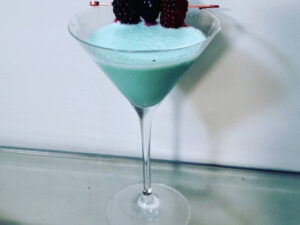
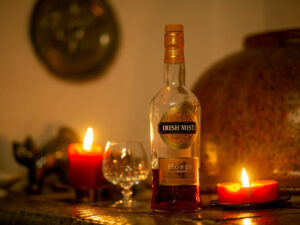
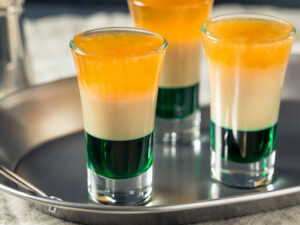
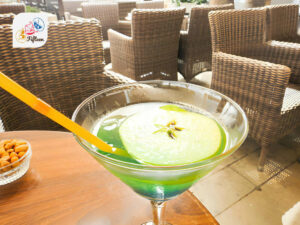
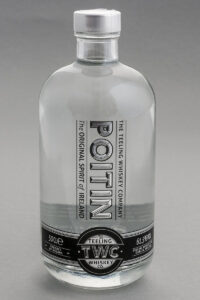
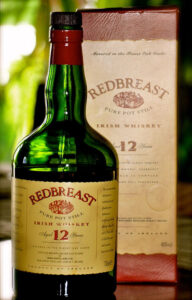
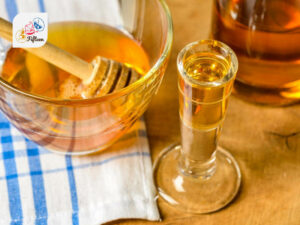
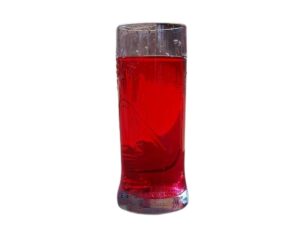
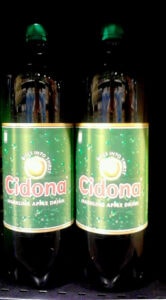
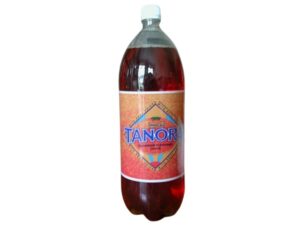
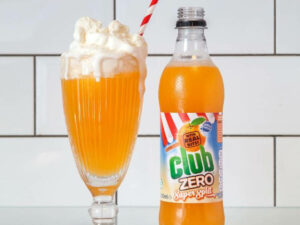
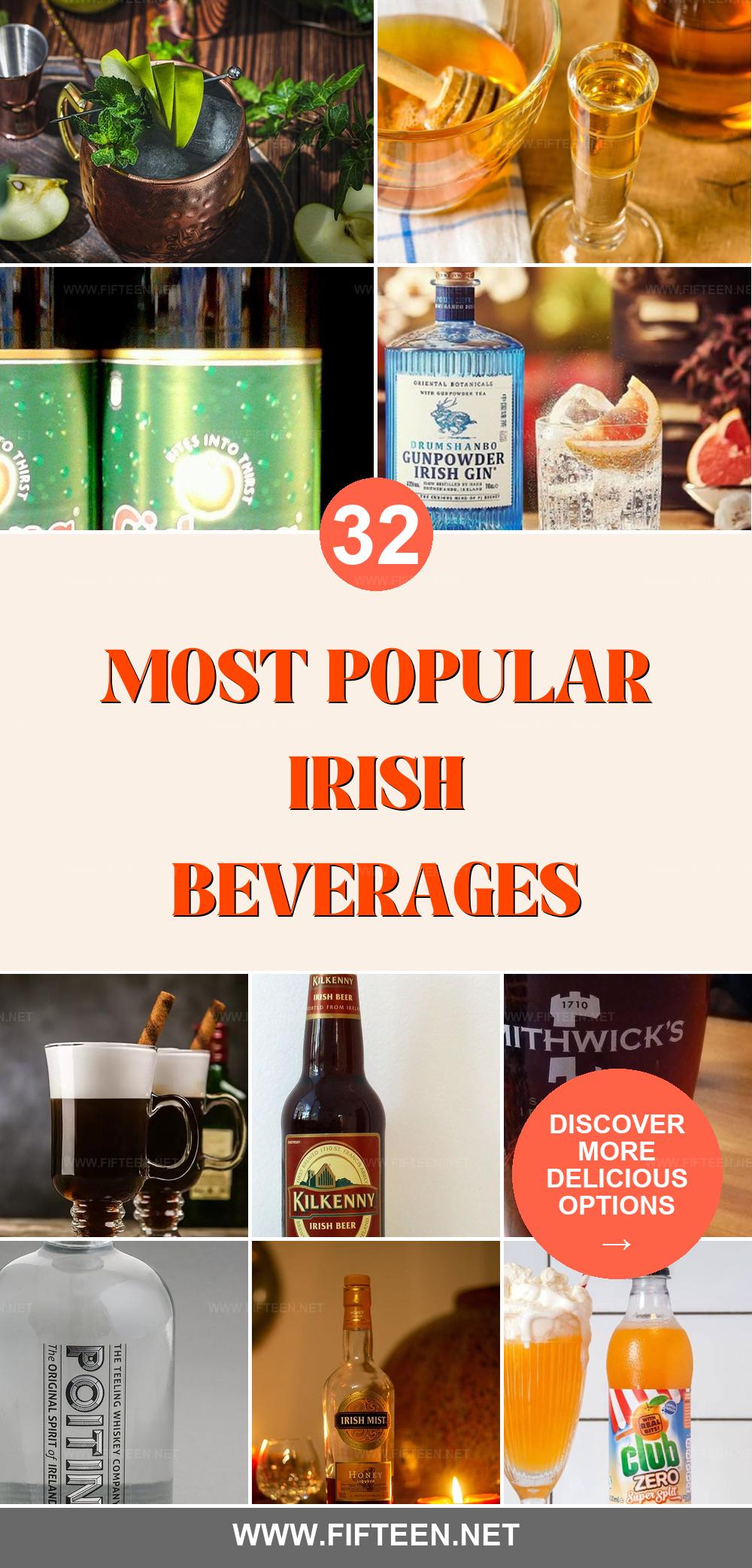
Jamie Scott
Editor in Chief, Senior Content Writer
Expertise
Home Cooking, Meal Planning, Recipe Development, Baking and Pastry, Food Editor, Cooking-video Maker, Western Food Evaluation Expert
Education
Le Cordon Bleu College of Culinary Arts
Local Community College, New York, NY
Jamie Scott is a skilled culinary expert and content creator specializing in Western cuisine. With over 15 years in the culinary field and formal training from Le Cordon Bleu, Paris, Jamie deeply understands how to blend nutrition with delicious flavors. His passion for cooking matches his commitment to making healthy eating accessible and enjoyable.
On Fifteen.net, Jamie brings a fresh perspective to classic dishes and beverages, offering readers insightful recipes, cooking tips, and a fresh view on meal planning that emphasizes taste, health, and simplicity.